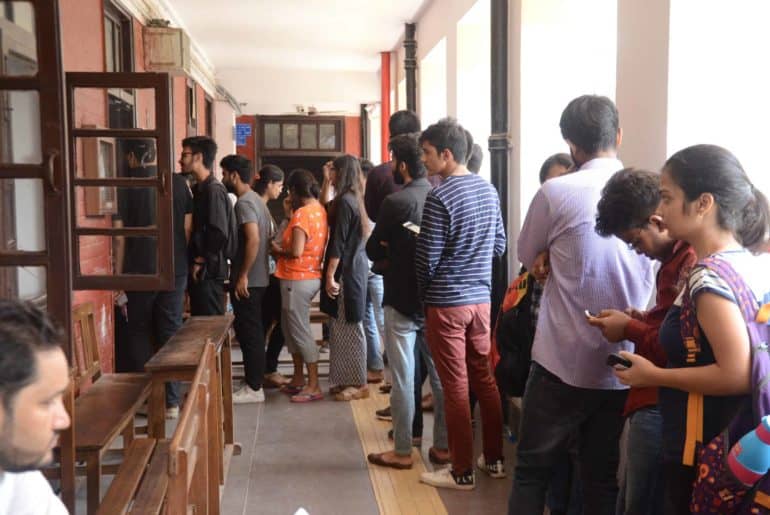The University of Delhi will be conducting a special admission drive for students belonging to the reserved categories from 29th to 30th July 2019.
A formal announcement was made by the University on 26th July 2019 which confirmed that a special admission drive will be conducted for students belonging to the reserved categories.
This drive will consider the left out students of reserved categories along with those students who were not able to pay their fees or missed their chances because of any other reason.
The students belonging to the reserved categories-Scheduled Caste/Scheduled Tribe Other Backward Class/ Economically Weaker Section/Persons with Disabilities/ Kashmiri Migrant/Children of Widow/ Minority (Sikh) who missed to apply in their respective categories at the time of registration can do so by requesting a change. Such applicants will also be considered for admission in their specified category in the entrance based undergraduate courses in the subsequent lists. Although, those candidates cannot claim admission in the lists that have been already announced.
All those women applicants who are residents of NCT Delhi and have already registered but could not apply for admission in Non-Collegeiate Women’s Educational Board (NCWEB) shall be considered for admission in NCWEB automatically. They will be admitted if they meet any of the preceding cut-offs. Also, applicants who were admitted but could not pay the fee shall be given a second chance.
All the applicants who cancelled their admission or could not take admission during the preceding cut-offs will also be considered for admission under this list, if seats are available.
In addition to the special drive, the University is also planning to conduct a detailed audit of the admission procedure. The main motive behind this audit is to look into the colleges that have admitted more number of students than the designated seats.
A University official also pointed out that some seats for the reserved categories have not been filled up yet.
3.67 lakh applications were received by the University for undergraduate admissions this year, out of which 2.58 lakh applications were completed with fees payment. The large number of applications shows the level of competition that the students had to face to grab one of the 64,000 available seats.
The seventh cut-off list will be announced on 6th August 2019 and the process of document verification will go on from 6th to 8th August 2019.
Feature Image Credits: DU Beat Archives
Priya Chauhan.


